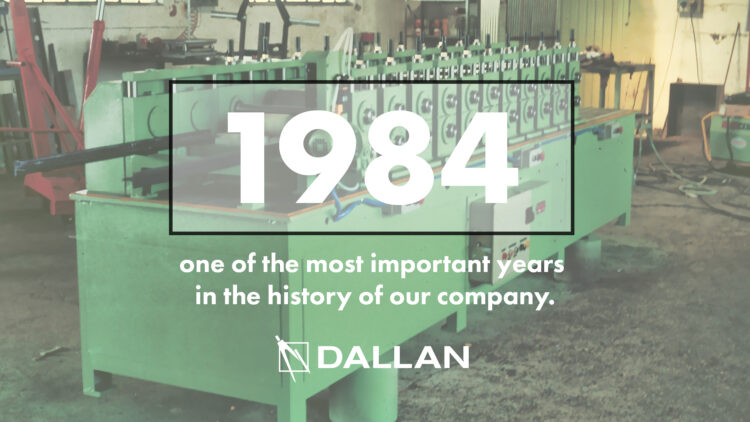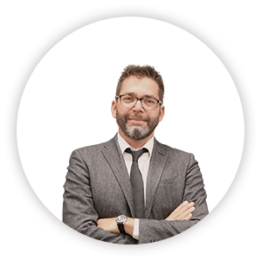1984

Dallan’s first founding partners were my father and mother in 1978.
When the company was starting out, it was difficult to find skilled technicians willing to leave the main companies to join the kind of small operation that Dallan was in the ‘80s.
So, to attract people and skills, my father also offered his first collaborators a small share of the company.
My father always tells me that the company experienced great difficulties in its early years.
He had to mortgage the house where we lived (several times) and he worked without pay for long periods of time.
Although, he always made sure his partners and employees received their salaries.
However, in 1984 – the year of George Orwell’s famous book – our company was almost out of work.
My father and mother decided to use their last savings to build a small roll forming machine to produce slat and invested everything they had in the Saie fair in Bologna.
Had it not gone well, my father would probably have gone back to being a designer at one of the companies in our area.
Fortunately, after a lot of effort, he managed to sell the machine at the fair and that gave my parents a much-needed confidence boost: 1984 was undoubtedly one of the most important years in the history of our company.
In that period, my father also made a trip to the United States.
He’s always loved reading books on management and strategy (he’s always been self-taught) and he brought along a book by Michel M. Robert on corporate strategy.
He always tells me that he was struck by a simple concept.
The book explained that a company should focus mainly on selling what it does well.
Therefore, to understand what it does well, it needs to analyze the profitability of every product it sells.
My father also had the cost data of the machines sold in previous reporting periods with him, so he analyzed them and understood that the only machines on which he made money were those for thicknesses of less than two millimeters, while the others almost always brought losses.
No sooner said than done.
During the return trip, he wrote his first business strategy, defining Dallan as a company specializing in easy to use roll forming systems for thin sheet metal.
The most difficult thing for a company that still had little work was to start saying “no” to customers who asked for machines for profiles over two millimeters thick.
“So, you don’t know how to make them?” – they would provoke.
So, my father began replying that the request simply “isn’t part of our production program”.
The effect of the decision to focus on a certain type of system was that the company began to get better and better and our market – now a smaller niche – began to expand internationally.
There was a need for more designers, more technicians and that’s why my father started founding other companies.
The first additional company was called Dalcos, in 1988. Here we started producing the decoilers and feeders for roll forming machines.
Without a product or a focus at the beginning, Dalcos was unable to move forward, so it remained one of Dallan’s subcontractors, without a real market, or at least until I took over in 2000.
In the meantime, my father founded other companies, which were basically subcontractors of the main company, Dallan.
Hence, Simeoni was created to produce rollers for roll forming machines, then Dallan Engineering – which was basically our technical office, then Elda for the construction of electrical panels and software design and, lastly, Ada for the design and sale of end-of-line automations.
You can find this chapter, and many others into my first book: “The Revolution of Efficiency” that you can request here.

Andrea Dallan
CEO – Dallan Spa
